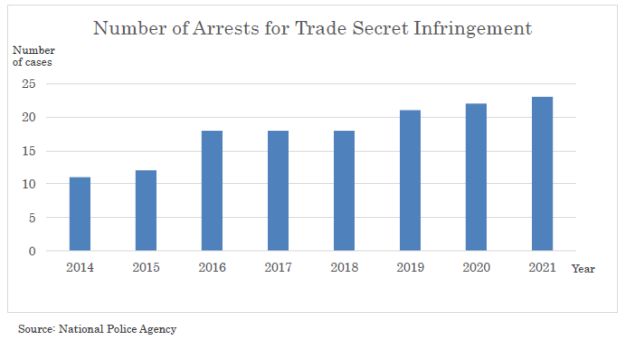The Nagoya District Court handed down a not-guilty verdict to defendants of a lawsuit over information leakage of sensor technology development. The defendants were former executives of Aichi Steel Corporation, a Japanese steel maker affiliated with Toyota Motor Corporation. Aichi Steel had criminally prosecuted the former executives for violation of the Unfair Competition Prevention Act in light of disclosure of trade secret. Aichi Steel (plaintiff) alleged that the defendants leaked the technical information regarding the equipment required for production of sensitive magnetic sensors to an electronic component manufacturer, which is a business partner of Aichi Steel, by drawing it on a whiteboard.
The court ruled that the information was too abstracted and generalized and therefore, it was only a combination of selected mundane methods. Thus, such thing may be easily conceived by one skilled in the art, and cannot be determined as a trade secret. The defendants had been claiming that the information was not trade secret because the technical data in question was obviously common technical knowledge for a machinery manufacturer and was not valuable information which can derive competitive advantage.
Under the Unfair Competition Prevention Act in Japan, trade secrets must meet the three requirements listed below.
- Controlled as a secret (confidentiality)
- Useful information in terms of business or technology (usefulness)
- Unknown to the public (not publicly known)
Prohibition includes illicit act of obtaining trade secrets which meets the above requirements, and the use or disclosure thereof to third parties in a bid to make a profit maliciously.
The court did not find the third requirement (not publicly known) on the technology allegedly leaked in this case. Consequently, the technology was not determined to be a trade secret and the defendants were acquitted. The court also stated that the act of Aichi Steel of attempting to gain protection of common information is expedient and that the prosecution was unreasonable. The decision could be regarded as a warning to excessive broadening of the interpretation of trade secret.
According to statistics published by the National Police Agency in Japan, the number of arrests for improper acquisition of trade secret has been increasing yearly. Among others, the number of cases in which information is improperly brought out by a departing employee is increasing. In a survey conducted by the Information-Technology Promotion Agency, Japan in 2020 regarding the status of trade secret management, the most common cause of information leakage was "taking out by a departing employee" which accounted for 36.3% out of 2,175 companies responding to the survey. It may be a result of the increase of mobility of the labor market. As economic security to avoid leaks of advanced technologies owned by companies is gaining its importance, companies are required to take further enhanced measures as well as strict and careful interpretation of the scope of trade secret.

The content of this article is intended to provide a general guide to the subject matter. Specialist advice should be sought about your specific circumstances.
